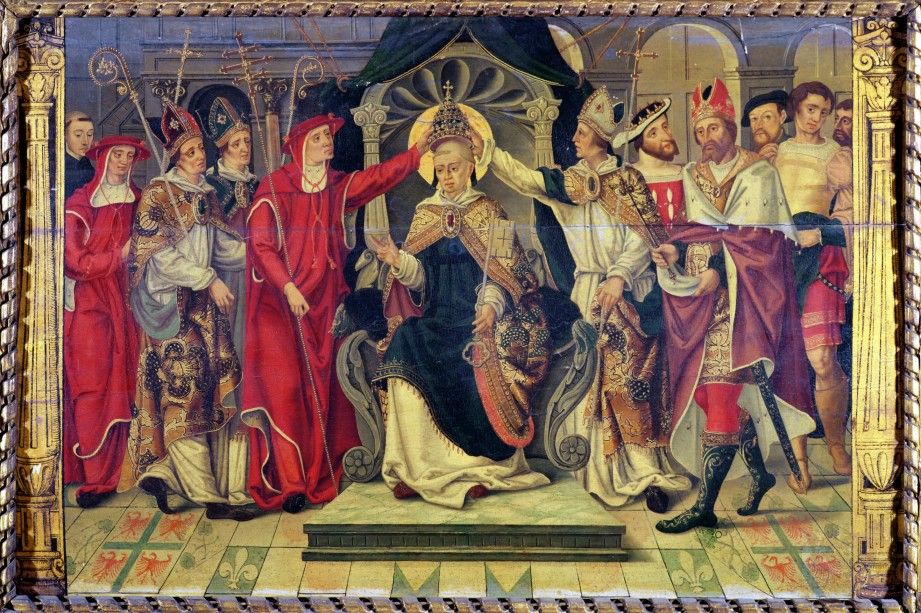 Apologies for slow posting this week, my PC has been out of action for crucial periods.
Apologies for slow posting this week, my PC has been out of action for crucial periods.Recently Dominie Stemp posted on her chance encounter with Mgr Basil Loftus in Scotland; her description suggests that the new Papacy has seriously gone to his head. This weekend he is euphorically comparing Pope Francis with Pope Celestine V (Born 1215, elected 5 July, 1294; consecrated and crowned, 29 August; abdicated 13 Dec., 1294; died 19 May, 1296). The headline (Catholic Times 20th Oct 2013) (which may not be Basil's work) is actually
Pope Francis ... the clone of Celestine V
Well let's hope not! Elected on a wave of pious mania, like those which which launched the tragic Children's Crusade of 1212 and the disastrous spread of the plague by Cardinal Federico Borromeo's procession round Milan in 1630, Celestine's papacy was only saved from having catastrophic results for the Church by his abdication after only 6 months.
Eamon Duffy (in his book Saints and Sinner p172) comments: 'the saintly but hopeless monk-hermit Celestine V, [was] elected after more than two years of deadlock in the hope that a saint might transform the Church. Instead the unwordly old man (eighty-five when elected) became the naive stooge of the Angevin King of Naples -- seven of his twelve first cardinals were Frenchmen, four of them Scilian subjects of Charles II.'
(Catholic Encyclopedia here.) He wanted, as Loftus notes, to go back to his hermitage, but (Basil forgets to note) it was not to be. His successor locked him up lest his hare-brained followers used him to create a schism, and he was dead 18 months later. Not a fate I would wish on Pope Francis.
His reign is interesting of course in lots of ways. It shows - I would have thought this would be obvious even to Loftus but it seems I'm wrong - that good intentions and holiness of life are not enough when it comes to exercising a great office. One might compare him with some of our most saintly kings, St Edward the Confessor and Henry VI (whose cause of canonisation is in fact open), not the most successful in bringing lasting peace to the land. Dante actually put Celestine in Hell, but his successors thought differently and canonised him in 1317. Celestine had the humility to realise he was making a hash of things, and that is something few men do. I hope Pope Francis doesn't have to. The comparison is hardly a flattering one.
 |
| The coronation of Pope Celestine V |
Since the cause of Henry VI is still open, readers may want to read John Blacman's memoir of King Henry VI (John Blacman was a Carthusian monk and confessor to the king), translated by M. R. James (to those who don't no him, most famous as a writer of ghost stories). The book is available on kindle in the Complete Works of M. R. James published by Delphi Classics.
ReplyDelete